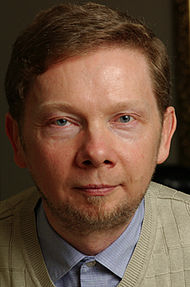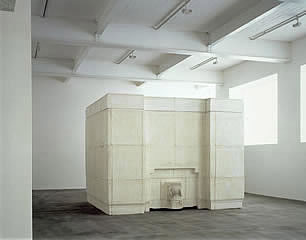 A star-forming region in the Large Magellanic Cloud. NASA/ESA image – WikiPedia
A star-forming region in the Large Magellanic Cloud. NASA/ESA image – WikiPedia
-0-
Tolle in Chapter 7 of A New Earth says;
the ultimate purpose of the world lies not within the world but in transcendence of the world. Just as you would not be conscious of space if there were no objects in space, the world is needed for the Unmanifested to be realized.
You may have heard the Buddhist saying: “If there were no illusion, there would be no enlightenment.” It is through the world and ultimately through you that the Unmanifested knows itself.
You are here to enable the divine purpose of the universe to unfold. That is how important you are!
NB Mr T was speaking of course to the awakened or at least the awakening. It is interesting to compare his statement on how important the awakened are with a Baha’i passage;
“Ye are the stars of the heaven of understanding, the breeze that stirreth at the break of day, the soft-flowing waters upon which must depend the very life of all men……”
SOURCE
The world of duality is the key to the world of nonduality – and nonduality isn’t the only goal! Whilst acknowledging that duality is the child of nonduality I want to enjoy the delicious snacks as well as awe & wonderment.
“Concepts are delicious snacks with which we try to alleviate our amazement.” A J Heschel (Who is Man p.88)
I also recall;
TWO ‘JEWELS’ SET ALONGSIDE EACH OTHER – a juxtaposition, one Hindu, one Jewish.
1) Here is an ancient poetic summation of the state of being human, of the cosmos and, implicitly, of the framework of Perennial Philosophy;
“Like two birds of golden plumage, inseparable companions, the individual self and the immortal Self are perched on the branches of the self same tree. The former tastes of the sweet and bitter fruits of the tree; the latter, tasting of neither, calmly observes.
“The individual self, deluded by forgetfulness of his identity with the divine Self, bewildered by his ego, grieves and is sad. But when he recognizes the worshipful Lord as his own true Self, and beholds his glory, he grieves no more.” ( from the Bhagavad Gita.)
.
2) From Abraham Joshua Heschel;
“The search for reason ends at the shore of the known;
on the immense expanse beyond it
only the sense of the ineffable can glide.
It alone knows the route to that
which is remote from experience and understanding.
Neither is amphibious:
reason cannot go beyond the shore,
and the sense of the ineffable
is out of place where we measure, where we weigh…….
Citizens of two realms, we must all sustain dual allegiance:
we sense the ineffable in one realm;
we name and exploit reality in another.
Between the two we set up a system of references,
but can never fill the gap.
They are as far and as close to each other as time and calendar, as violin and melody,
as life and what lies beyond the last breath.
The tangible phenomena we scrutinize with our reason,
The sacred and indemonstrable we overhear with the sense of the ineffable.”
Heschel A. J. (1971), Man is Not Alone, New York: Octagon Books p.8
-0-
TAGS: the world, transcendence, objects, space, awaken, enlightenment, duality, nonduality, purpose, Buddhist, Baha’i, stars, juxtaposition, Heschel, Bhagavad Gita,





